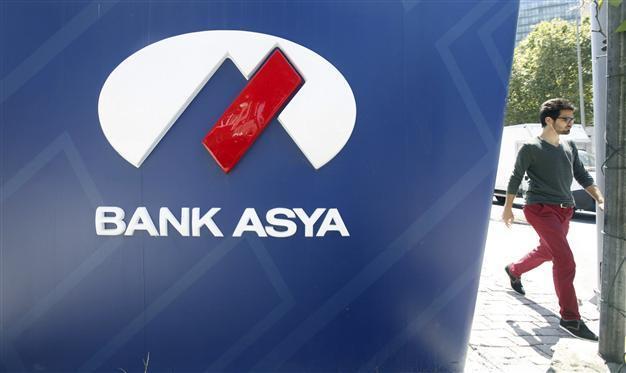Turkish banking watchdog puts Bank Asya under scrutiny
ISTANBUL – Reuters

Turkey’s banking watchdog will take a closer look at the operations of the Islamic lender Bank Asya, after talks with potential buyers failed to yield results. REUTERS Photo
Turkey’s banking watchdog will take a closer look at the operations of the Islamic lender Bank Asya, after talks with potential buyers failed to yield results.
The Banking Regulation and Supervision Agency (BDDK) will keep the lender, whose founders are sympathizers of the Islamic scholar Fethullah Gülen, under scrutiny within the framework of Article 70 of Turkey’s Banking Law, according to a report by daily Sabah.
An unnamed source from the BDDK also confirmed the report, while speaking to Reuters news agency.
The article allows for the BDDK to take restrictive measures in cases where the bank has failed to take the necessary measures itself.
The article comprises of a restriction or temporary suspension of the bank’s activities, imposition of limitation pertaining to the collection and extension of funds, dismissal of all or some managers, merger with another bank and finding new shareholders.
According to daily Sabah, the watchdog will put Article 71, which regulates the lenders transfer to the Savings Deposit Insurance Fund (TMSF), into use if the measures taken as part of Article 70 fail to save the lender.
The lender has found itself at the center of a political feud between the ruling Justice and Development Party (AKP) government and Gülen supporters since the Dec. 17, 2013 corruption operation, which sparked a row between the two groups.
State-owned companies and institutional depositors loyal to President Recep Tayyip Erdoğan have withdrawn 4 billion Turkish Liras, some 20 percent of the bank’s deposits, earlier in the year, according to media reports.
On Aug. 21, state-run lender Ziraat Bank announced it had ended unofficial acquisition talks with Bank Asya, citing inconsistency with the banks priorities.
Earlier this year, the lender had also attempted to form a partnership with the Qatar Islamic Bank (QIB), but that initiative also ended in failure, announcing on Aug. 8 that talks with the QIB had stopped.
The government also canceled tax collection and social security contracts with Bank Asya earlier this month, seen by observers as a move to wind down the lender. However, Bank Asya said those actions would not have a significant impact on its activities.
Adding to headaches, Turkey’s main stock exchange, Borsa Istanbul, announced on Aug. 13 that it would stop trading Bank Asya’s shares “until uncertainty regarding its ownership was resolved.”
